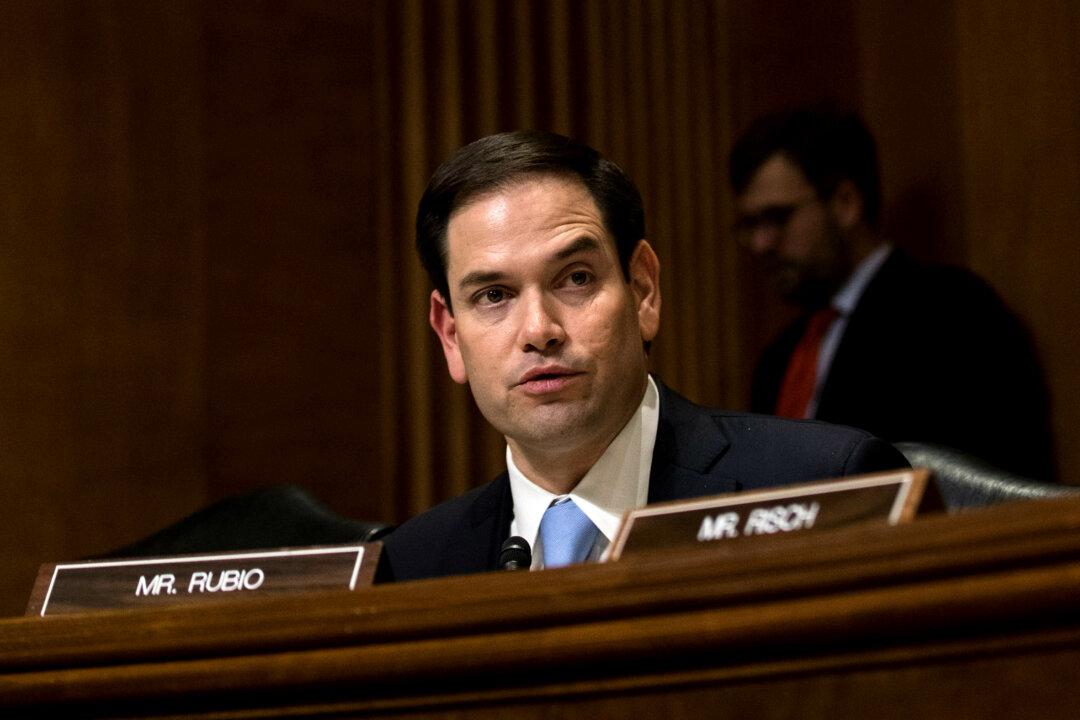As Hong Kong elected yet another pro-Beijing proxy to be the city’s leader, Congressional-Executive Commission on China (CECC), a China-monitoring unit under the US Congress condemned the election as rigged and a gross violation of Hong Kong’s right to autonomy.
Voting on Sunday by Hong Kong’s 1,194-member Election Committee elected Carrie Lam, a candidate that is most favored by Beijing, to be the new chief executive and the highest official to the supposedly autonomous city. John Tsang, a former civil servant who was perceived to be more pro-democrat came in only a distant second. This is despite the fact that Tsang led in all major opinion polls among the Hong Kong public, and it is believed that Tsang would have easily won in a popular election.
U.S. Senator Marco Rubio and the chair of the CECC condemned China for again denying the people of Hong Kong the opportunity to elect its own leader in a fair election: “Beijing’s clear interference in these elections is yet another example of a precipitous erosion in Hong Kong’s long-cherished autonomy,” said Rubio.
In the same statement CECC points out that Beijing officials sought to interfere with the outcome of the already highly restricted election by pressuring Election Committee members to vote for Carrie Lam. Prior to the voting Beijing had threatened to “step in” if the Election Committee does not conform to its wishes.
The CECC statement points out that Beijing’s interference with Hong Kong’s election is a violation of Article 22 of Hong Kong’s Basic Law and China’s obligations under international law, which Beijing had agreed upon during the transfer of sovereignty of the city in 1997.
“The election itself was limited to 1,194 voters, denying Hong Kong residents a meaningful voice in their government,” the CECC statement said.
Opinion polls across the board have consistently indicated that the Hong Kong public overwhelmingly desire a direct election of their own chief executive, something that Beijing’s central government has always rejected. The 1,194-member Election Committee on the other hand has been criticized for being a “small-circle” composed mostly of pro-Beijing elements and special interests not reflective of Hong Kong’s popular will.
“If Hong Kong is to become just another mainland Chinese city under the new Chief Executive’s leadership, we will have to reassess whether Hong Kong warrants special status under U.S. law,” said Rubio in the CECC statement.
While the statement did not specifically name the special status that might be reassessed, observers believe it might include a wide range of preferential treatments Hong Kong currently receives from the United States over the rest of mainland China.
“Hong Kong passport holders currently enjoy preferential treatments by the US over those that hold passports from the People’s Republic of China, and this might change,” said Henry Kwok, an expert affiliated with the Taiwan Association for China Human Rights, a Taiwan-based NGO dedicated to China’s human rights issues.
Paul Huang is a Master’s candidate at the Fletcher School of Law and Diplomacy, Tufts University, and is affiliated with the Taiwan edition of The Epoch Times.




